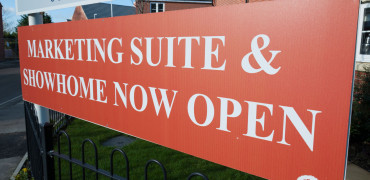The Prime Minister and her ministerial team have put UK housing firmly in the spotlight in recent years, indeed they are following the lead of Theresa May’s predecessor David Cameron and his Cabinet.
The spotlight covers a wide area, from encouraging greater housebuilding to initiatives aimed at speeding up the planning process and allowing far greater freedom for developers.
At the same time in the UK, we have devolved government which does mean there are different planning requirements for different regions
Anyone contemplating this renewable form of heating needs to be mindful of this, but heat pumps still offer one of the simplest ways of future-proofing homes and meeting planning requirements.
If you’re looking to replace your existing heating or add a renewable system to it, then modern, inverter-driven heat pumps are the way to go
Carbon reduction targets
Heat pumps and particularly the air source variant are recognised as a major part of the country’s future, with the Committee on Climate Change forecasting that fact by 2030, heat pump heating will rise to over 1 million installations each year.
Heat pumps are seen as crucial to the transition towards a low carbon economy and the greening of the grid, which is urgently needed if we are to seriously reduce the UK’s carbon emissions and meet the legally binding targets – something that is simply not possible if we continue using ‘traditional’ heating.
The tide is definitely turning against the traditional carbon-intensive forms of heating such as gas and oil, and, with the start of mainstream TV advertising by E.ON, consumers are slowly but surely being made more and more aware of the possibilities achievable with a heat pump.
The recent price rises in oil and gas are also helping convince households that the long term answer is no longer a gas or oil boiler.
Add to this the nation’s reliance on imported gas and oil from unstable regions such as the Middle East and Russia and it’s easy to see where the future lies.
Permitted development
On the face it, the new planning process is clear - due to their limited aesthetic impact, heat pumps are likely to be considered ‘permitted development’ by local authorities, which means that no planning permission will be necessary.
However, as any industry expert will tell you, it is still advisable to check with the local authority prior to installing any renewable energy technology.
For example, in Wales and Northern Ireland, air source heat pumps are not considered permitted development and will require planning permission.
But in England, air source heat pump systems will be considered permitted development provided they meet the following criteria:
- the proposed installation site must not be located in the grounds of a listed building or in a conservation area
- the pump unit must not be placed on a pitched roof
- the unit must be placed more than one meter from the edge of the property
- the pump unit must be smaller than 0.6 square meters
The permitted development rules for air source heat pumps in Scotland were changed in March 2016 and are now broadly in line with the requirements in England.
Keep the noise down
Regardless of location, one of the major factors affecting the installation of air source heat pumps relates to noise, as the outdoor condensing unit contains a fan to draw air over the parts which extract heat energy from the outdoor air.
This means that siting the heat pump somewhere where it doesn’t disturb you or your neighbours is important and this will become more of an issue as heat pumps become more and more common.
The vital thing then is to select a heat pump that is known to be quiet and which has been designed to deliver reliable, renewable heating, whatever the weather.
Fixed speed or older heat pumps can still be used effectively but in terms of noise, they will probably need installing quite a way away from neighbouring properties or windows, which restricts their use somewhat.
If you’re looking to replace your existing heating or add a renewable system to it, then modern, inverter-driven systems are the way to go as they are designed specifically to deliver all the heating and hot water a home needs at the minimum noise levels possible.
This means that on the whole, it doesn’t matter which region or where you are, a modern system, with a noise level output of 45dBA will give you almost total flexibility on where you site your heat pump.
The other factor to consider, whether you are a homeowner, a housebuilder, installer or social housing provider is that MCS accreditation for any heat pump installation will almost certainly ensure compliance with planning - AND will help ensure that the property is eligible for the Renewable Heat Incentive.
Paul Groves is Editor of Specification Magazine.

